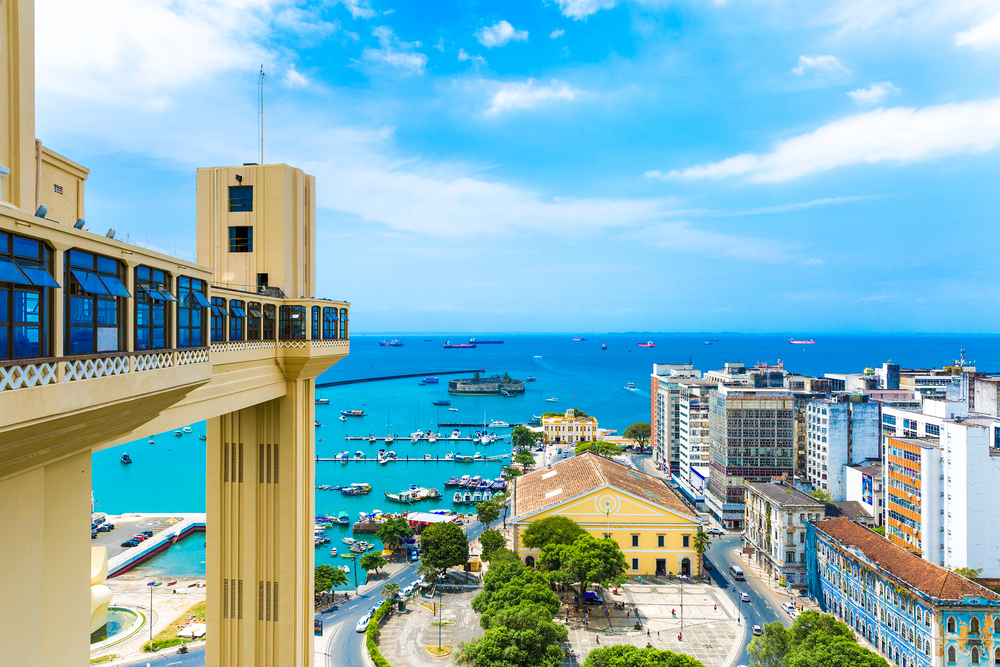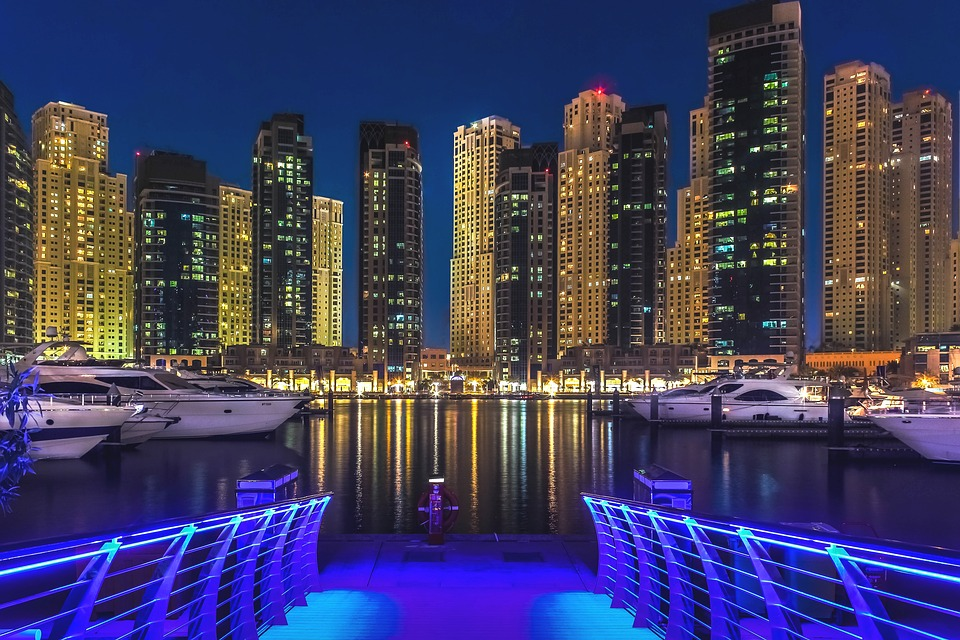The current coronavirus pandemic has seen millions of workers around the world concerned for their safety. Some permanent employees and contractors have lacked sufficient Personal Protective Equipment (PPE), others have been restricted to certain locations or with limited access to tools and support, and many are uncertain about Health & Safety policies and their legal working rights.
With Covid-19 affecting the business world, and instances of modern slavery on the rise, workers will need more information and support than ever before. Here are five things you can use to ensure you are safe and legally protected, wherever you are in the world.
5 Ways to Protect Yourself When Working in Another Country
1. Research the Country Before You Get There
Law and moral standards can vary significantly across countries and continents. Saudi Arabia’s legal system is considered to be much stricter than much of the rest of the world, with gender segregation and lesser rights for women, and capital punishment a common practice for a number of crimes. Over a dozen countries operate a complete ban on alcohol consumption and most geographical areas of the globe have zero-tolerance on drugs. Healthcare may even be more difficult to access in some regions without country-specific insurance or paying large fees.
Local culture is integral to forming business and personal relationships when working away from home. Some regions are conservative and prioritise family time over individual socialising or working extra hours, many societies around the world are religious and require certain practices and celebrations in the calendar to be respected by residents and visitors alike. More liberal democracies will provide greater rights for LGBT individuals, those with minority religions and those with disabilities. Customs such as handshakes or eye contact can be vital to interpersonal communication, so do your research to remove the possibility of offending a colleague or missing a potential opportunity.
Try to get a feel for your new home country before moving there to identify what daily life will look like. What are the transport systems like – how will you get to work? What is the cost of living, and how and where will you eat, exercise and access entertainment and leisure? Think about how you will build your personal life as well as your career: will you need to learn the local language, or will you be able to get by with basic conversation? Dubai has a large international community – over 80% of residents are expats or migrant workers – and Taiwan, Vietnam and Portugal rank as the best countries for expats to work in 2019. Other countries with smaller international workforces may be unfamiliar with foreign nationals, and communication styles and customs may differ.

Local weather will be surprisingly important to your new contract or permanent position. The UAE has average temperatures of 40°C (100°F) in the month of August and UV levels are much higher than most other areas of the world. Regions such as Scandinavia and Russia usually see temperatures drop several or even dozens or degrees below 0°C, and tropical hurricanes, tornados and high-impact storms are common during certain times of the year. Travelling to a new country can mean the weather is completely different to your usual climate and might require purchasing or renting appropriate clothing and medical supplies, as well as changes to your routine to stay hydrated, guard against frostbite or protect yourself in the event of extreme weather.
Know a few useful phrases, look up emergency contact numbers such as police, fire brigade and ambulance services, and find out where the nearest hospitals and embassies are. Although this may sound like a lot of preparation, small details can often make the difference in life or death scenarios, especially in countries where you don’t speak the language, are less familiar with local customs and legal processes, and will not necessarily have a close network of reliable individuals available to support you in person.
2. Know Your Rights
One of the best ways to protect yourself is to fully comply with local law. A confirmed job offer may not be enough to guarantee your right to work: some countries require sponsorship, a confirmed address, sponsorship, In countries such as the United States of America, your previous criminal record, regardless of convictions, time spent in prison or time passed since arrest, may impact your travel. Work with your staffing agency or employer to ensure you have the right legal documents, including passports, visa and work permits, and discuss with them anything that you think could impact upon both your ability to start your new job and receive legal protection.
Before you travel, read up on the legal system of your new home country. Ensure you know your rights in terms of working practices and access to legal support. Many countries have requirements for basic office or worksite conditions, operate specific Health & Safety laws and limit daily or weekly working hours to protect staff wellbeing. Simply being aware of your own legal rights will reduce the likelihood of your employer taking advantage of you or the possibility of finding yourself in a difficult situation.

3. Have an Emergency Contact
When working abroad, you are likely to leave behind your networks of friends and family, and will effectively be on your own in an unfamiliar country. Prepare one trusted person, be it a family member or close friend, who is prepared to step in and help you should you need. This person should be aware of the basic duties of your role, when and where you are travelling, the address of the locations where you will be living and working, and more than one way to keep in contact with you. This person will need to access copies of your contracts and communications with your employer and recruitment agency to evidence any unethical practices or misinformation.
You will also need to keep contact details of this person safely in your accommodation and try to memorise their phone number if you can. Also write down contact details for your local MP or political representative and your embassy to save valuable time if you or your emergency contact needs to get in touch with them.
4. Work with an Ethical Recruitment Company
Modern slavery or forced labour is on the rise, especially in Africa and Asia. Over 40million people around the world are currently trapped under modern slavery conditions. Unethical practices are much more common and easier to hide than many people think: removing the passports of workers traps them in their current country and by extension their current employer, and withholding pay binds individuals, who cannot afford new accommodation and money for food without another job, to their employers.
The Dhaka Principles are a set of human rights-based guidelines that require employers to support migrant workers throughout overseas employment. Ethical staffing agencies will adhere to these principles and will be able to evidence exactly how they support and protect their candidates before, during and after the recruitment process.
An ethical recruitment company will:
- Provide you with the accurate details of working conditions including pay, working hours and duties of your job.
- Never ask you for money. All recruitment fees should be covered by your employer company, who will pay the staffing agency. You should never need to pay for job applications, interviews or introductions to potential connections.
- Provide you with a copy of your contract in both your home country and the new country you are working in; these contracts must match. The contracts should be in your first language so that you can fully understand and approve them.
- Ensure that candidates keep their passports. Some employment agencies take workers’ passports away after interview and hold them as a way of securing payment, or businesses may take passports as a way of preventing workers from leaving their jobs. You should never be asked to give up your passport.
- Provide you with high quality accommodation and the tools you need to do your job, and conduct inspections of your accommodation, worksite and your own individual wellbeing.
- Communicate with you regularly and ensure you are aware of how to report any mistreatment, access any services and get in touch with them if you need.
VHR are proud to be an ethical recruitment company who have helped over 12,000 candidates find new jobs in Europe and the Middle East for over 17 years. Take a look at all our available jobs.
Have you lost your job due to Covid-19? Here are 5 Tips for Job Hunting During Coronavirus.




